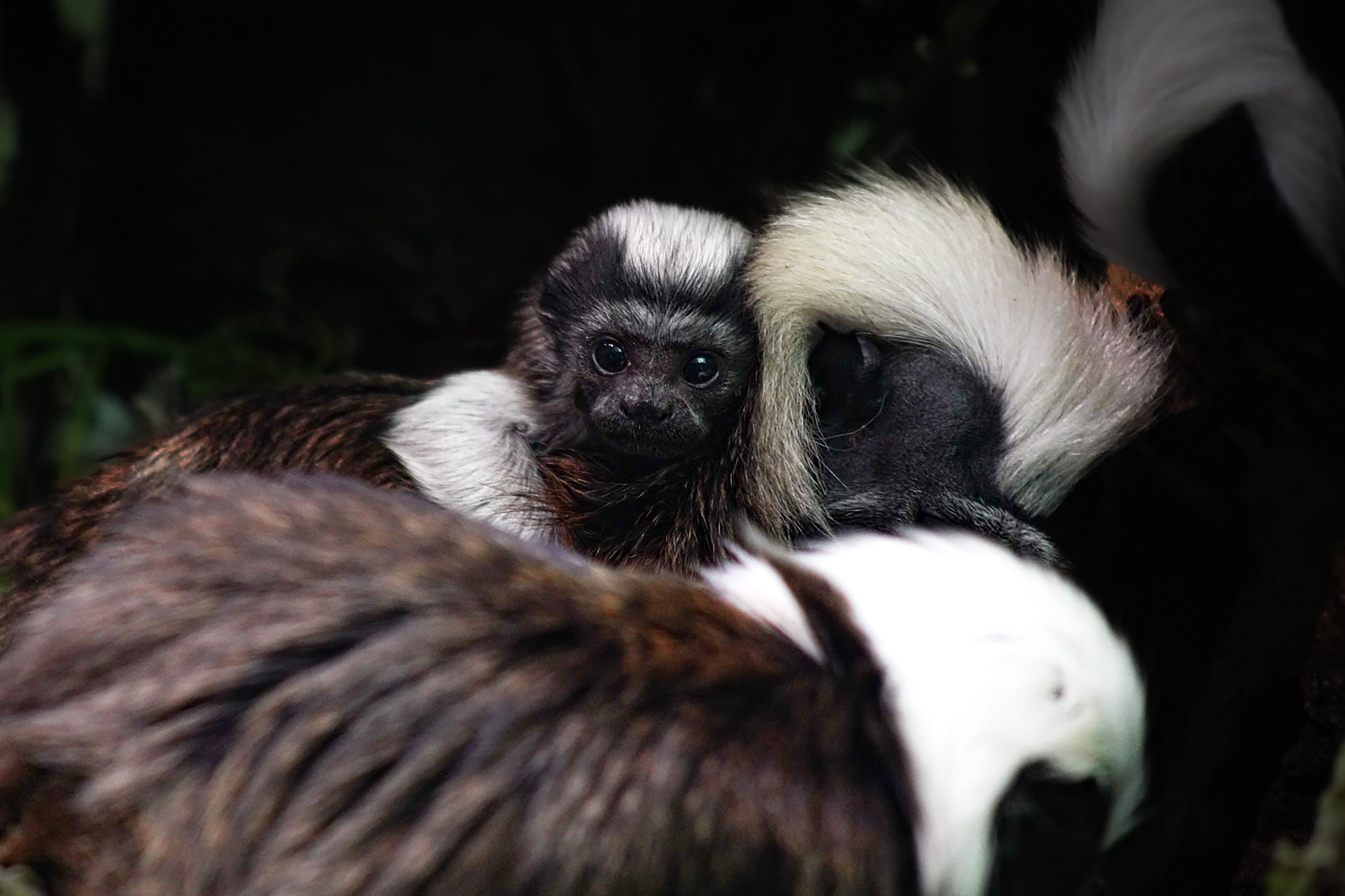Zoo announces birth of tiny tamarin to mark Endangered Species Day
Marwell Zoo is holding competition to name the new arrival.

A Hampshire zoo has announced the birth of a cotton-top tamarin as they mark Endangered Species Day.
Now Marwell Zoo, near Winchester, is launching a competition to name the tiny monkey with voters given the option of three names from The Addams Family to follow in the family tradition as its older siblings are called Pugsley and Pubert.
The choice of names in the competition are Fester, Lurch and Gomez.
Amy Deny, animal team leader for primates and small mammals, said that parents Mico and Gurt would take turns carrying the new arrival, which clings to the fur on their backs and tummy areas before it becomes fully independent at about five months old.
She said: “Cotton-top tamarins are native to Columbia and are critically endangered, with only around 2,000 individuals left in the wild.
“They are threatened in the wild by residential and agricultural development and the pet trade. This is a really exciting time for our troop at Marwell as this is the second time our pair have reproduced.
“Mico and Gurt play an important role in the EAZA ex-situ programme, ensuring a healthy population of tamarins exist in human care to conserve the species.
“Last year was quite overwhelming for the first-time parents, learning to look after their infants and being the sole care providers. However, this time around they have the help of juveniles Pugsley and Pubert.
“Cotton-top tamarins co-operatively rear their offspring, meaning all members of the troop take it in turns to carry the babies. This gives the parents an important chance to rest.
“While dad Mico does most of the hard work, older brother Pugsley has also started sharing the workload and taking the baby outside with him while playing and foraging for food.
“The babies have an incredible grip, and cling onto the carrier while leaping around the habitat, which although a little nerve-wracking is great fun to watch.”
Ms Deny said that in the wild, cotton-headed tamarins live in humid forests where they can leap from tree trunk to tree trunk using their claw-like nails to grip onto bark.
When resting or sleeping, they coil their tails over one shoulder and along their back and they communicate with each other through contact calls, she explained.
Cotton-top tamarins are named because of the long tufts of white fur on the top of their heads and they eat fruit, flowers, nectar and small prey such as frogs, snails and insects.
Bookmark popover
Removed from bookmarks